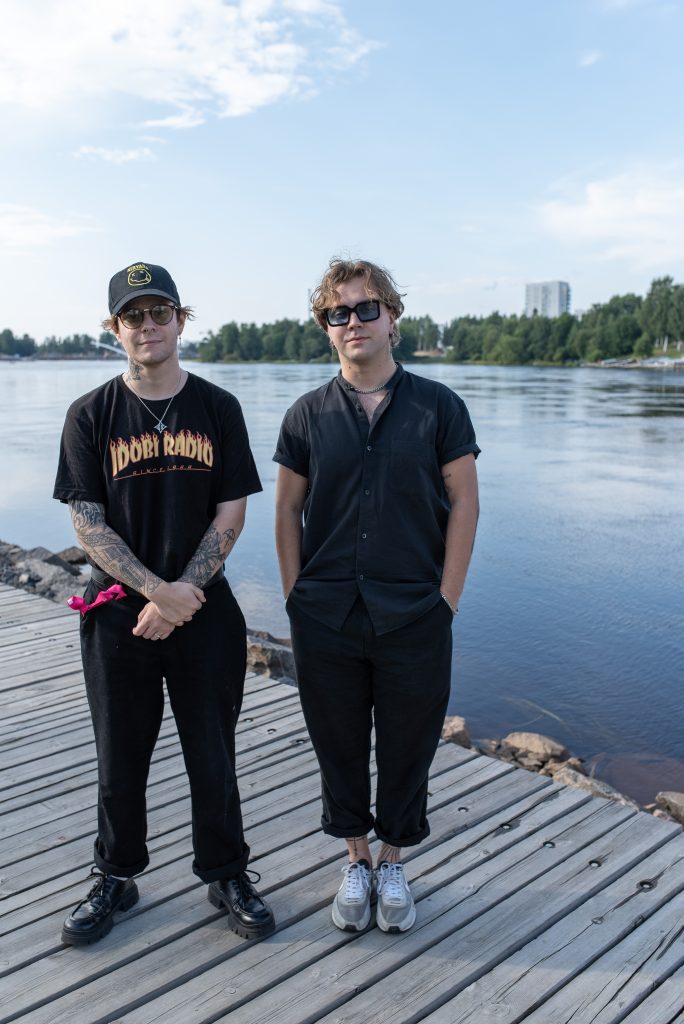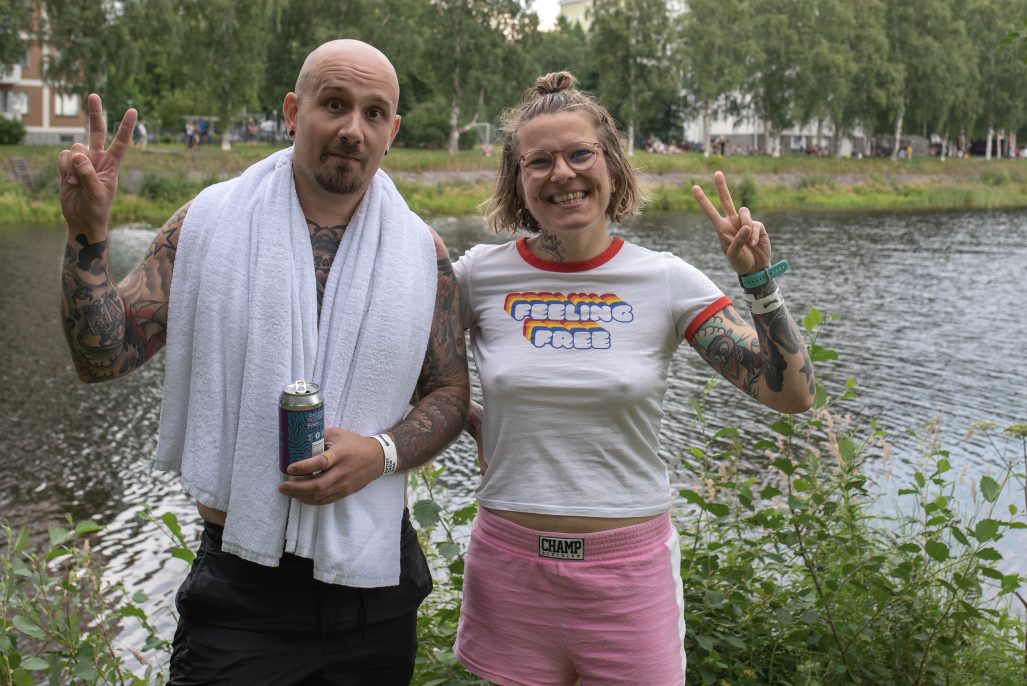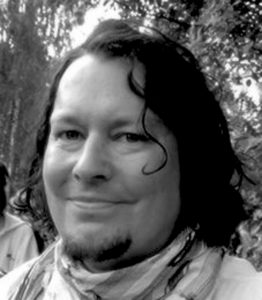The Tampere-based band Huora and Oulu’s very own Blind Channel have had a busy year: both bands released new albums in March that sent them on the road for respective tours.
Huora has been touring extensively around Finland, while Blind Channel has performed not only in Europe and the United States, but also in Tokyo, Japan – without forgetting their home country, of course.
Qstock brought the bands to Oulu, and members from both bands took a moment to sit down and have a chat with the Oulu Student Magazine.
Tip: Try to prepare for stressful times
What do a touring artist and a student have in common? Stress, pressure and tightly scheduled lives, for starters. But when we ask the members of Huora and Blind Channel how they manage such things, we get a hearty burst of laughter in response.
“It’s definitely been a learning curve for me, since I only entered the music industry in my thirties,” Huora’s singer Anni Lötjönen, who just turned 41, notes.
“I’ve learned it all the hard way, by just doing things wrong first and figuring it out from there.”
Blind Channel’s Aleksi Kaunisvesi, responsible for the band’s samples and percussion, shares the same outlook.
“You just have to learn by trial and error when it comes to figuring out when it’s better to take it easy and when it’s okay to stay up late.”
One lesson learned has been that it’s easier to manage stressful times when you have a plan for them and therefore can prepare yourself.
“Knowing that stress and strain come and go in seasons has been an important lesson. The most important thing is to prioritize downtime in order to bounce back from it all,” Blind Channel’s bassist Olli Matela says.

Tip: Know yourself and your limits
Lötjönen says that a music career has forced her to get to know herself and where her limitations lie. The process is never-ending, because your energy levels and stamina undergo changes as you age. Such a phenomenon can be evident during one’s student years as well: a freshman can withstand the whirlwind of student life better than a person who’s further into their studies.
Huora’s drummer Saku Sahlstedt emphasizes the importance of introspection in order to find personal limitations when it comes to one’s ability to withstand stress. In addition to that, he mentions the importance of speaking out – even about negative feelings.
“Being vocal about your feelings with others is a good way of handling stress and pressure. If you keep mulling in your emotions alone, it’ll eat you alive. It’s vital to let it all out,” Sahlstedt says.
Course deadlines and exams can elevate stress levels, but talking about it can be helpful. Exercise is another way to let out some steam while taking care of your wellbeing. Lötjönen mentions cross-country skiing as one of the best ways to take care of your body and mind; she used to ski a lot last winter while preparing for the upcoming tours.
Blind Channel’s duo also consider exercise to be an important part of their lives. Kaunisvesi says that he exercises quite a lot, and Matela enjoys getting his body moving as well. The bassist’s favorite places in Oulu are by the water: there are tons of hiking routes by rivers and the sea. Additionally, Oulu has plenty of ski tracks, where it’s easy to clear one’s head.
Tip: Everyone’s study journey is different
There is a diverse lot of students on campuses, and each one of them has their own, unique background. The same goes for the artists we’re interviewing. Lötjönen from Huora studied to be a practical nurse after secondary school, while Sahlstedt studied industrial engineering and production. Lötjönen assures that she has always been a good student and focused in her studies – she even received a scholarship from her practical nursing studies.
“I was the complete opposite of that. I was always partying, and while my friends went on to graduate in four years, I had to stay behind for a fifth. That’s when I decided that it was time for me to graduate,” Sahlstedt recalls.

Lötjönen laments how studying has been made more difficult: it’s expensive and straining. Many students know this as well, as they have to work alongside their studies to make ends meet, which can make their years of studying that much more straining. Lötjönen would study more if it was emotionally and financially less draining.
“But I do enjoy studying, it just makes sense to me,” she adds with a laugh.
Matela from Blind Channel describes himself to be a picky student, one that was interested in some topics while having no fascination with others. After graduating from the Madetoja Music Upper Secondary School, he continued his studies at the Oulu Conservatoire, which he describes as a “little stress school” that taught him a lot.
In contrast, Kaunisvesi dropped out of upper secondary school to go study music production in Amsterdam. He studied abroad with an “all-or-nothing” mentality.
“I had to give it everything I had, because I had moved abroad and turned my life upside down to get a degree. I was fully immersed in my studies around the clock,” Kaunisvesi recalls.
Tip: Having plans is a good plan
Members from both Huora and Blind Channel have many years of experience in the music industry. When they are asked to share some words of wisdom to students, the first thing they all agree on is the importance of sleep. On tour, sleep can become a secondary priority – just like students with lectures, events, possible jobs and other hobbies filling up their calendars.
“It’s amazing what a good night’s sleep can do for you,” Kaunisvesi remarks.
Lötjönen considers sleep to be the basis for everything else in life. Additionally, it’s beneficial to be around people that give you strength to go on. Matela mentions the importance of planning and setting schedules, even in the long run.
Sahlstedt agrees. He urges students to consider their priorities. Student life often revolves around various events and parties, but it’s also important to consider whether it’s beneficial to go out during the weekend if there’s going to be an exam the following Monday.
“I know it’s hard. Though I didn’t exactly follow my own advice when I was younger, I’d still advise students to consider the benefits of short term “sacrifices” in the long run,” the drummer notes.
“It’s surprisingly easy once you stop taking everything too seriously,” Kaunisvesi concludes.
Translation by Anna Tiira.


















